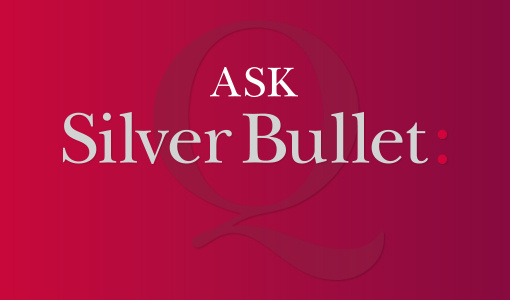10 Feb

I am told that Is “content marketing is king” but what is “content” and why is it king?
Ask Silver Bullet: February 2015
We are now told that “content” is king and that we have to re-shape our entire marketing strategy to revolve around content. Yet, what really is content marketing? And how do we go about executing a content marketing campaign?
Essentially Content Marketing is a marketing technique where you create and distribute valuable “content” to your audience, with the objective of driving action. Content is used to inform and entertain potential consumers creating attention and ultimately causing behaviour. In a marketer’s case, we want to induce engagement, advocacy, leads and then, sales.
So, why use content? Well, most consumers, both current and potential do not want to hear marketing, or advertising messages. Conversely, modern day consumers have a real thirst for “content”, a thirst for relevant information that is seemingly unquenchable. Content marketing can give consumers that information. In advertising, we try to engage with the audience - with content marketing, it is the individual that is trying to engage with you.
If you can produce content that is of interest and in some cases, unexpected, then you have the best possible opportunity to engage. Essentially, you want to connect with your target, by telling a story, tapping into shared emotions, being funny or responding to current events. Sales aren’t the be all and end all, as 85% of businesses utilise content not for the sale but to develop that engagement with their brand.
However, you cannot just create content and the target consumer will engage - you firstly need to understand whom you want to target and their network. The networks being the profiled or social groups the individuals are part of; within these networks individuals then actively communicate and share information with each other. Content is not just about the message but also about how you send this message and which channels or mechanisms, such as the digital or social media platforms like twitter for example, are used to deliver it.
In this day and age there are many channels by which we can consume content. The actual amount of these channels is exponentially increasing with the growth of digital channels, especially video and social media, as is the growing number of devices by which we can consume this content, principally smart devices and wearable technology. We as consumers tend to stick to our own networks, so you need to target a network, understand this network and which channels they use to consume content. If you target the right network and use the right channel to them, by the very nature of social media, the message will then be “shared”.
These channels and your targeted network are continually evolving, so they need to be effectively managed. Research has shown that a growing number of millennials (those born between the late 80s and early 2000s) consume content through new media channels, primarily social and digital channels. The suggestion that this is because of an apathetic generation that is not interested in global issues is far from the truth; they have a real hunger for relevant information. They have simply lost faith in traditional publications so have chosen to seek information and content elsewhere, mainly through digital sources.
You have to be careful with your content. “Bad” content and content deemed unoriginal can be extremely damaging for your brand. 2014 saw the rise of “content” and many brands were looking to jump on the content bandwagon resulting in a lot of rushed, poor content being developed. A lot of content was also one off content. In order for content to be truly successful it needs to be followed up and the conversation needs to be continued.
Not only does the content need to be continued but also your content message needs to be continually entrenched throughout all your marketing communications. A good example of this is KLM airlines, which not only develop excellent and interesting video content but also continue to place their message throughout all other marketing channels, especially social media.
With content marketing you need a plan, a strategy. What is your message? To whom do you want to speak? Which channel you will utilise to speak to that group or individual? In essence…simple marketing.
If you are considering utilising a content marketing strategy, simply want to know more about marketing or have another marketing question we can help with, talk to us. Email your questions anonymously to us today hello@silverbulletmarketing.co.uk or Tweet us (not so anonymously) @SilverBulletPR and use the hash tag #AskSB
